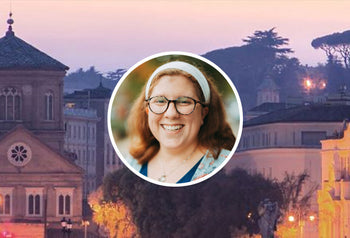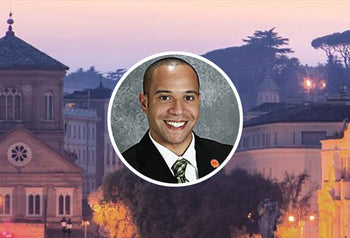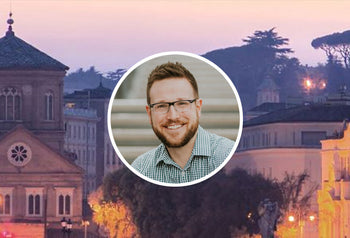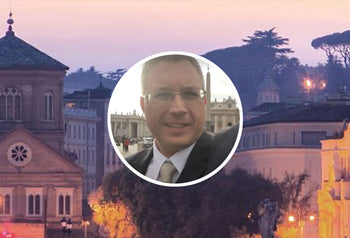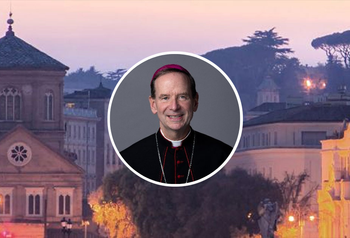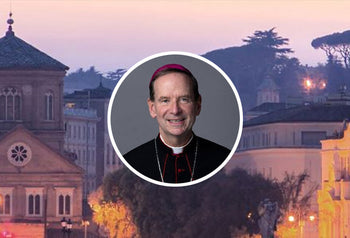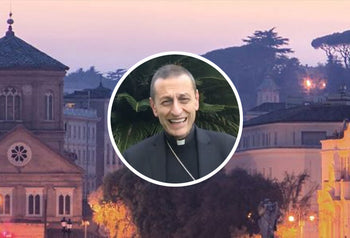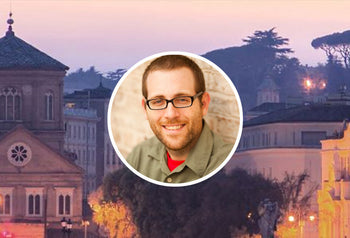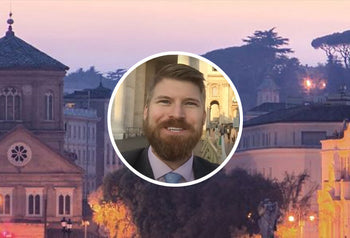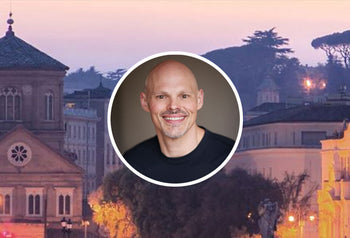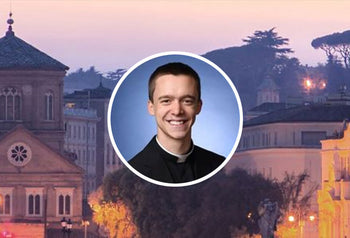
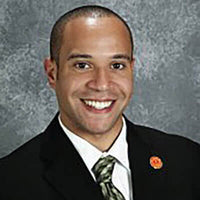
Important Movements Highlighted in the Final Document
Featuring Justin McClain
About the Author
Justin McClain is a high school theology teacher and the author of Called to Teach and Called to Pray.
The final document from The Synod on Young People, the Faith, and Vocational Discernment isn’t short. However, four themes are repeated throughout:
- listening
- the necessity to encourage conversation and dialogue
- the duty placed upon us to both teach the truth and live the truth
- the role of the mentor and accompanier who walk with young people on their journey of faith, and
- parents as living witnesses to the faith to help model and teach young people about the Church
The family is the first community of faith and parents are the first teachers of the faith. Within the family, a young person can first truly taste the love of God, see the practice of God’s presence, and witness others striving for holiness. We explore the key theme of the importance of the family’s role in the formation of faith.
You can read the full document here.
The Role of the Family
Synod on Young People, the Faith, and Vocational Discernment
by Justin McClain
“The family is the first faith community where, for all its limitations and incompleteness, the young person experiences God’s love and begins to discern a vocation.” (72)
As a husband, father, and veteran Catholic school educator (in my thirteenth year of teaching theology and Spanish at Bishop McNamara High School in Forestville, Maryland), I have seen the divinely-instituted roles of mother and father to be critically important and essential in a young person's formation. In particular, this reality is relevant in how they are formed into modern disciples and, God willing, future saints.
I recognize that I cannot take my role as a husband and father lightly. Of all of the ways that God could have incarnated himself, he chose to enter the world as a unborn child within the context of a family, the Holy Family. Looking to the example of St. Joseph is a humbling one for any man who takes his role as husband and father seriously because the standard of sanctity is set with the Holy Family. Just as parents can look to the Holy Family for inspiration, guidance, and intercession, so too can children find trust in their parents in knowing that they can provide a warm, loving home—a domestic church—within which the children can benefit from the flourishing of familial support provided by a mother and father per their divinely-planned complementary roles. My wife and children are true gifts from God, and I can only hope to imitate in some small way the manner in which the Holy Family lived, but am ultimately humbled by such efforts. As an extra measure of humility, whenever I begin to tell a dad joke, it seems that my family wishes that I would practice the silence of St. Joseph.
The longer I teach, the more aware I am of the vital role that my students' families play in their upbringing. This may seem to be a given, but what I teach to my students is most effective if the message is reinforced elsewhere. My students may think I am off my rocker when I say things like science, faith, and reason are compatible, but I am redeemed when faith-filled science teachers on the other side of the school affirm the same. To an even greater extent young people benefit from a faith community that positively shapes their beliefs from multiple angles. As such, I look for numerous opportunities to collaborate with my students' parents in encouraging their children—my students—to remain open to the Good News of Jesus Christ as they prepare for a challenging experience in college and into their own adult lives. Ideally they will remain open to God's will all the while.
The youth of today, especially Millennials (of which I am one) and those of the iGeneration, are, just like those from every previous generation, eager to notice the presence of God in their lives. Adults are called to help them remain open to the vocation that the Lord has in mind for them, recalling his words from John 15:16, ”It was not you who chose me, but I who chose you, and appointed you to go and bear fruit that will remain.” Let us adults, therefore, have an optimistic and positive outlook regarding the youth, lest we become as cynical as we are sometimes tempted to claim that they are. In a special way, let us ask the intercession of the multitude of young saints whom the Church celebrates. One such figure is St. Agatha, who died as a young adult and whose memorial is February 5. Agatha provided us with an example of embracing chastity and other manifestations of virtue, which the youth of today need in a particular way, in light of the manifold empty messages that pervade our culture and discourage responses to God's call.
St. Agatha, virgin and martyr, pray for us!
Download this article as a PDF here.
Related Books & Resources
Explore Series

Join Ave Explores, It’s Free
Sign up for Ave Explores to explore everyday faith for everyday Catholics with articles, videos, podcasts, social media exclusives, surprising facts, and more. Enter your email address below to become a part of this exclusive community.
Revise text to read: Don't forget to follow Ave Maria Press and hashtag #AveExplores for all the extra content.






